Literature makes good people better

(Photo: istock, starush)
MANY YEARS before he stepped out onto the balcony at St. Peter’s Basilica and introduced himself to the world as Pope Francis, the young Jesuit Jorge Mario Bergoglio taught literature to high school students in Santa Fe, Argentina.
In a remarkable 2024 letter on literature’s role in our collective formation and “path(s) to personal maturity,” he remembers how his energetic students did not want to use class time to read El Cid, an epic poem from medieval Spain; they asked for something fresher. The young Bergoglio leaned into their restlessness and let them tackle El Cid at home. In the classroom, they pivoted to more contemporary voices like Federico García Lorca.
“Yet,” Francis writes, “as they read those works that interested them at that moment, they developed a more general taste for literature and poetry, and thus they moved on to other authors. In the end, our hearts always seek something greater, and individuals will find their own way in literature ... everyone will find books that speak to their own lives and become authentic companions for their journeys.”
It seems difficult to dive into anything with depth nowadays. The topics du jour for opinion columnists and popular podcasts are time and attention: how we don’t have enough of the first, and we can’t manage to keep the second. For many, algorithm-fueled daily rhythms predispose us to consuming quick snippets of content—an Instagram reel here, a quick Apple News article there. Constant busyness and over-scheduled calendars don’t often include room for what novels and literary fiction offer: the slow immersion into other voices, worlds, and perspectives.
Pope Francis believes we need to flip the script. He “proposes a radical change of course” for all of us: centering storytelling and literature near the core of our lives. He makes it clear that this would benefit everyone, from diocesan leaders discerning how to prepare seminarians for ministry and teachers wrestling with syllabi choices to parents trying to etch out a few free minutes between day jobs, field trips, and diaper changes.
To center literature, we don’t need a month-long retreat to read for hours on end (although that seems lovely, if you can swing it). We just need to weave written stories and poems into our days alongside our favorite streaming shows, social media personalities, and sports podcasts. Fiction, Francis observes, requires more of our “personal engagement” than other contemporary media. We “rewrite” the worlds we read, changing and expanding ourselves all the while. In prioritizing good literature, we might rediscover its “spiritual power” and see life’s complexities, fractures, and joys with fresh, renewed eyes.
When I first read the pope’s letter last July on a warm train headed to an academic conference in Philadelphia, waves of emotion and memories washed over me. I was suddenly 11, standing outside a Borders bookstore outside Chicago, eagerly waiting for the midnight release of the newest Harry Potter book alongside hundreds of other readers, young and old; I was 15, wrestling with searing images from Ralph Ellison’s Invisible Man on the car ride home from my predominantly white Catholic high school, reflecting on race, identity, and belonging; I was 20, sitting on the steps of my student apartment complex in London near St. Pancras Station, feeling a little less homesick as I recognized a famous line in my first-ever read-through of an Oscar Wilde play: “We are all in the gutter, but some of us are looking at the stars.”
In the following pages, vowed men and women from many corners of the Catholic world share stories about the stories that matter deeply to them. In spending time with them, you might rediscover a few of the fictional voices that captured your imagination somewhere along the way; perhaps, even, you’ll sense God’s presence in a rustled page or a long-forgotten memory.
Related: VocationNetwork.org, “The writing life of sisters, brothers, and priests.”
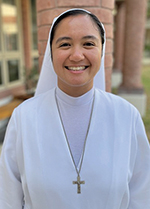
Books awaken yearning for God
By Sister Chelsy Sanchez, F.M.A., middle school religion teacher

Literature opened up my mind to the possibility of the transcendent. The stories told in the good books I read made me yearn for adventure. The example of good characters inspired me to try to be good myself. The stories were riveting and evoked a yearning in me for beauty. Eventually, I came to understand that I was truly yearning for God. Literature gave me a foundation where I searched for God in the everyday and eventually came to know God through the church.
Redwall series by Brian Jacques
The Chronicles of Narnia by C.S. Lewis
Ender’s Game series by Orson Scott Card
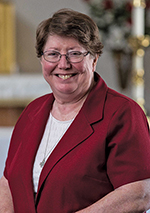
Literature that breathes
By Sister Lou Ella Hickman, I.W.B.S., writer, poet, and spiritual director
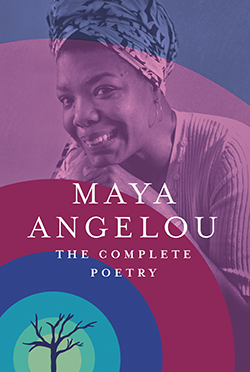
Along with Elizabeth Bishop, I have read and reread Denise Levertov, especially her religious and spiritual poems. She, like myself, was a Catholic convert. I am often asked, either as a writer and poet or as a religious sister, what were the influences on my writing and my decision to enter religious life. While great literature has impacted my life, I have also experienced that literature is more than words on paper. It was the culture I grew up in, alongside film and music. Then there are the people who write the books, make the films, and create and perform the music. This is literature that breathes.
Poetry of Denise Levertov
Poetry of Maya Angelou
Poetry of Elizabeth Bishop
Short stories of Flannery O’Connor
Works of Graham Green
Works of Ray Bradbury
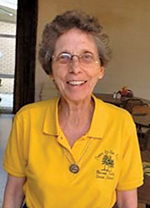
Penance reading brings change
By Sister Christine Wiltrakis, M.S.B.T., retreat and workshop minister
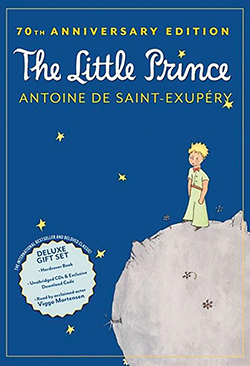
“For your penance, read and ponder The Little Prince by Antoine de Saint-Exupéry.” Imagine my surprise! I had expected a few Hail Marys, but this penance became one of the most transformative experiences of my life. In this wondrous tale, a young prince from a distant asteroid meets a human pilot stranded in the Sahara. Through their encounter, a reader learns profound lessons about love, relationships, and seeing with the heart. On the day of my Confession, like the prince, I struggled with the imperfections of those around me. From The Little Prince, I learned to cherish each sister in my community as unique, shaped by our shared journey, mission, sacrifices, and love.
The Little Prince by Antoine de Saint-Exupéry
Poetry of Mary Oliver

Alive and awake to grace
By Brother Tom Wendorf, S.M., English professor
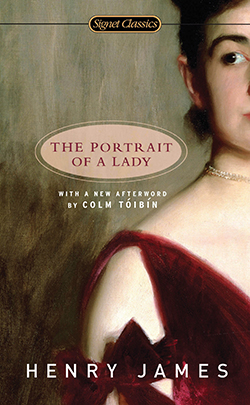
Literary works have helped me be less surprised by human frailty, corruption, and moral failure, including my own, while at the same helping me to understand the wondrous nature of God’s grace in human life, the world, and the universe. These works of literature have confronted me with the complexity of human life and helped to expand and complicate my understanding. Perhaps they’ve made me a little more compassionate and less judgmental, though I still have room to grow. Works of literature have taken me places I’ve never been, immersed me in the experiences of others who are different from me, and cultivated my consciousness of God, others, and the world. I’m more alive and awake to God’s grace at work because of reading and rereading literary works.
The Divine Comedy by Dante Alighieri
“Revelation” short story by Flannery O’Connor
The Portrait of a Lady by Henry James
The Silmarillion, The Lord of the Rings by J.R.R. Tolkien
“As Kingfishers Catch Fire” poem by Gerard Manley Hopkins
The Power and the Glory by Graham Greene
“The Outing,” “Come Out the Wilderness,” and other stories by James Baldwin
Gilead and other novels by Marilynne Robinson
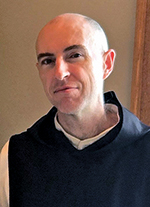
Fictional monk stirs the heart
By Father Isaac Slater, O.C.S.O., vocation and novice director
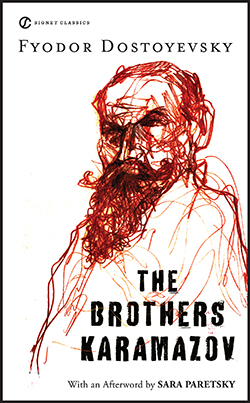
My first image of a Christian monk was in The Brothers Karamazov, which I first read around age 16. One of the book’s heroes, the elder Zosima, is an aging monk whose spirit of universal mercy is set in counterpoint to the pervasive nihilism of late 19th-century Russia. As a young man, Zosima had gotten into trouble. Then, he had a dramatic conversion that changed his life and set him on a course to the monastery. I would later learn that some of Zosima’s discourses were borrowed from homilies by the seventh-century monk Saint Isaac of Syria.
The very first night I came to my community as a postulant, not only did the monks read together from Saint Isaac, but they were reading the very passage Dostoyevsky had placed on the lips of Zosima, about the monk as a person of mercy who prays from the heart for everyone. I knew then I was in the right place.
The Brothers Karamazov by Fyodor Dostoyevsky
Works of Andre Dubus
Works of Flannery O’Connor
Poetry of Emily Dickinson
Poetry of Philip Whalen
Poetry of Rae Armantrout

Journey stories deepen faith
By Father Jim Kent, O.F.M.Conv., retreat director
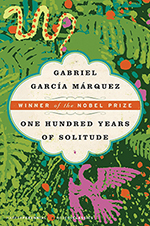
I’m particularly drawn to the journey motif, whether it’s Jesuits sneaking into Japan where Christianity has been outlawed (Silence) or cowboys leaving the dusty Rio Grande for the Milk River of Montana (Lonesome Dove). The first has characters seeking answers as to how God is present in the horrors they encounter, and the second shows suffering and joy, sacrifice and glory on the way to a longed-for paradise.
One Hundred Years of Solitude by Gabriel García Márquez
Silence by Shūsaku Endō
Lonesome Dove by Larry McMurtry

Windows to other worlds
By Sister Colleen Gibson, S.S.J., coordinator of pastoral care
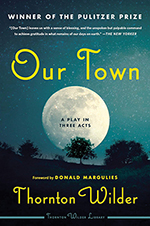
The works in my list all give a glimpse into the human condition and recognize that in the mess of life there is grace and mystery. They offer wonderful stories that have given me the chance to bring my own story to bear on the characters I encounter. The way these authors creatively craft their works provides a window into other worlds and other ways of thinking and seeing. These qualities expand my horizon, giving me a chance to shift my reality and be in the presence of these writers and characters for a while.
Our Town by Thornton Wilder
The Sparrow by Mary Doria Russell
And Then There Were None by Agatha Christie
The Hawk and the Dove series by Penelope Wilcock
Poetry of Denise Levertov
Poetry of Mary Oliver
Poetry of Carl Sandburg
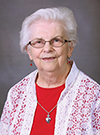
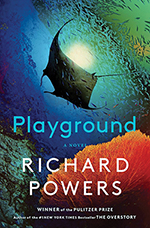
Natural world takes on new dimensions
By Sister Regina Siegfried, A.S.C., tutor to immigrants
The contemporary works of literature by Richard Powers are profound reflections on the intimate connection between humans and the natural world. In The Overstory and Playground, the trees and the ocean are strong characters in their own right.
The Overstory and Playground by Richard Powers

Empathy expanded
By Sister Boram Lee, F.M.A., English teacher
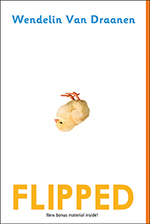
Literature has helped me to grow in empathy for various people I’ve encountered in my life and sharpened my ability to recognize the presence of the Holy Spirit in diverse human experiences. Teaching literature at the middle school and high school levels has made me a shepherdess of souls, as Pope Francis writes in his letter on the role of literature in formation.
Flipped by Wendelin Van Draanen
The Witch of Blackbird Pond by Elizabeth George Speare
Jane Eyre by Charlotte Brontë
The Tidings Brought to Mary play by Paul Claudel
Anna Karenina by Leo Tolstoy
A Christmas Carol by Charles Dickens

Short story triggers vocation
By Sister Beth Murphy, O.P., congregational communications director
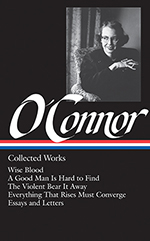
Poetry appeals to my need for a prairie horizon—opening vistas for me. Espionage appeals to my innate need for good to win over evil. Flannery O’Connor challenges my concept of grace and faith.
I owe my vocation to O’Connor. It was 1982. I was reading her short story “The Turkey,” home alone in my apartment, and found myself speaking aloud, “Yes!” Having surprised myself, I turned it into a prayer. “OK, God,” I said, “whatever that just was, Yes!” A few weeks later I was deep into discernment for religious life.
Poetry of Mary Oliver
Poetry of Wendell Berry
Espionage novels
Short stories of Flannery O’Connor
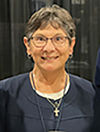
Poems influence vocation
By Sister Theresa Saetta, R.S.M., vocation minister
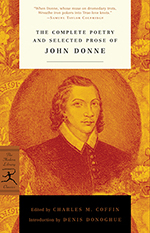
John Donne’s “Batter My Heart, Three-Person’d God,” simply baffled me when I first heard it, even as our English teacher helped us decipher it. The author’s desire to be taken by God, to be “battered,” to be “burned,” challenged my understanding. Yet, it must have remained in my psyche, as later in life I realized the same feeling as I prayed with Jeremiah 20:7, “You seduced me, Lord, and I let myself be seduced.”
The poem by John Donne may have helped shape my choice in answering a call to religious life, but the poem by Gerard Manley Hopkins helped shape how I would live in this vocation. I read it in a high school English class, and the poem influenced one way that I share the love placed in me at birth. It gave me words to ponder as I minister with others. Christ is here, Christ is now. I must continue to live the essence of who I am, and pray, in Hopkins’ words, that I may “do that for which I came” and be one who “Keeps grace: that keeps all her goings graces.”
“Holy Sonnets: Batter My Heart, Three-Person’d God” poem by John Donne
“As Kingfishers Catch Fire” poem by Gerard Manley Hopkins
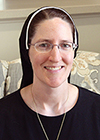
Vows indirectly affirmed
By Sister Jeana Visel, O.S.B., theology school dean
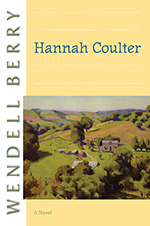
I love how Wendell Berry depicts the stability and goodness of the fictional Port William, Kentucky, a rural community that Wendell construes as not too far from where my monastery is in southern Indiana. I can imagine the land he describes. He speaks of the value of putting down roots and investing in a place, investing in people, investing in the deep knowledge that comes only from faithfulness over time. While not overtly religious in tone, the message of his writing speaks profoundly to the vows of stability, obedience, and fidelity in the monastic way of life of Benedictines. His characters are so human, a mix of goodness and weakness, and the way they are bound to each other by place feels old-fashioned and profoundly countercultural in a way that the world needs today.
Jayber Crow, Hannah Coulter, and other works of Wendell Berry about the people of Port William, Kentucky
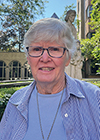
Upholding hospitality
By Sister Helene Sharp, C.S.C., vocation coordinator
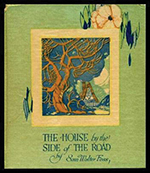
Sam Walter Foss’ “The House by the Side of the Road” was my childhood reality. The front door of our old house opened out onto the dirt road that passed through our ranch. We were isolated, yet our door was always open to travelers who chanced by, affording us opportunities to practice hospitality—giving a drink of water or coffee, offering a seat at the table if it was mealtime, or inviting those more isolated than we to Thanksgiving dinner. Our family learned acceptance of each person. “They are good, they are bad, they are weak, they are strong / Wise, foolish—so am I” are lines from this poem that I read as a child. This work reinforced the unspoken ranch ethic of welcome and laid a foundation that continues in my life, no matter where I minister.
“The House by the Side of the Road” poem by Sam Walter Foss
Silas Marner by George Eliot

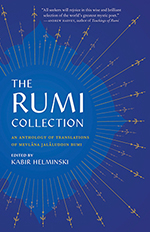
Spirit strengthening poetry
By Sister Michele Schroeck, R.S.M., vocation minister
While I don’t have a degree in theology or spirituality, I have always been drawn to spiritual reading. I like to read something to strengthen my spirit before I go to bed. Also, I have found that sometimes poetry leads me to a deeper place in prayer.
Poetry of Rumi
Poetry of John O’Donohue

Window to the soul
By Brother Stephen Balletta, S.M., vocation minister, high school religion teacher
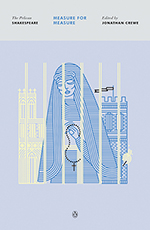
North of Hope presents a marvelously realistic portrayal of a young priest and the challenges he faces to remain faithful to his calling. As only Shakespeare can, Measure for Measure dramatizes the contrast between harsh judgment and abundant mercy.
I first fell in love with reading and literature in my junior year of high-school, the same high school where I now teach. Literature opens a window into the soul, and the best literature explores themes common to all humanity. Good literature highlights our quest for connection, meaning, transcendence, and the sacred.
North of Hope by Jon Hassler
Measure for Measure by William Shakespeare
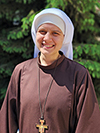
Haunted in the best way
By Sister Maggie Flynn, F.E., novice
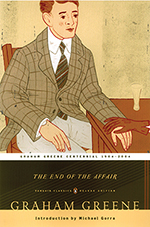
The End of the Affair by Graham Greene showed me that God might be asking more and wanting to give more than I could have imagined. Its central theme is God breaking into the lives of people who desperately desire him, even though they do not realize that fully. In the major character’s choices, slowly and painfully purified, I saw a terrifying and exhilarating glimpse of what God was asking of me: to leave behind what I thought I wanted, so I could be closer to him, whom my heart was truly seeking. This book had an enormous impact on me, and it haunted me in the best way throughout my discernment to religious life.
The End of the Affair by Graham Greene
The Brothers Karamazov by Fyodor Dostoyevsky
“Holy Sonnets: Batter My Heart, Three-Person’d God” poem by John Donne

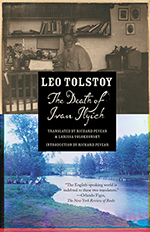
Heightened sense of God’s presence
By Brother Sam Amos, F.M.S., vocation director
Tolstoy’s stories beautifully explore how the divine and transcendent are present in aspects of ordinary life that might seem mundane or even disappointing and broken. Our Catholic faith teaches us that there is no part of our life in which God is not present. Tolstoy’s writings have made me appreciate this reality in a deeper way.
“The Death of Ivan Ilyich,” “Alyosha the Pot,” “Kholstomer,” and other short stories by Leo Tolstoy
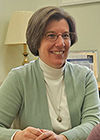
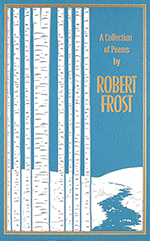
Poem captures essence of prayer
By Sister Rachel Terry, I.H.M., director of campus ministry
I am drawn to the silence and serenity that the poet presents and find that I yearn for that quality of space in my life. I yearn for the clarity of cold air, the consoling quiet of the night, the softness of fresh snow, the time to pause, enjoy, and notice. That quality of that space is often what I seek in my prayer life.
“Stopping by Woods on a Snowy Evening” poem by Robert Frost

Characters instill courage
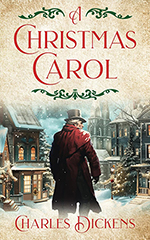
By Sister Mary Jo Curtsinger, C.S.J., vocation minister
Entering the struggle of characters trying to do the right thing—enacting their best selves and ideals in the complexity of their worlds—instills courage in me. It's an exercise in putting myself squarely within the communion of saints and discovering anew the power of God’s grace.
All the Light We Cannot See by Anthony Doerr
A Christmas Carol by Charles Dickens
The Color Purple by Alice Walker
Harry Potter series by J.K. Rowling

God’s mercy shines through
By Brother Stephen Glodek, S.M., director of Marianist Center for Lay Ministry
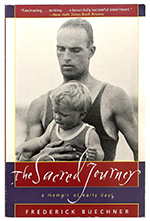
What draws me always to Frederick Buechner is that he articulates through his own pain and struggles the surprisingly merciful and loving encounter with God. Sharing that journey has been my own feeble ministry. The study and appreciation of literature on my own journey with God is best said by Buechner in The Sacred Journey: “What I felt was something better and truer than I was, or than I am, and it happened, as perhaps all such things do, as a gift."
Poetry of Gerard Manley Hopkins, S.J.
Poetry of Jessica Powers
Poetry of Mary Oliver
Works of Frederick Buechner
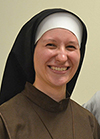
Seed of greatness in all
By Sister Jess Lambert, F.E., religion teacher
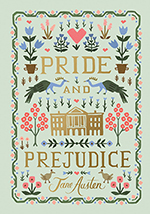
An aspect that delighted me and anguished me about these works was the journey of the main characters to live up to the fullness of their callings. There was something of a seed of greatness planted in the hearts of such normal, relatable, and often “little” people, as in the case of Hobbits. The quest was certainly accomplished by the aid of bravery, wits, and the other natural virtues, but what made these works great was how they honored the truth that even one’s flaws and failings have their place in bringing about the ultimate resolution to the story.
Les Misérables by Victor Hugo
The Lord of the Rings trilogy, “Leaf by Niggle” short story by J.R.R. Tolkien
Wingfeather Saga series by Andrew Peterson
Pride and Prejudice by Jane Austin
The Chronicles of Narnia by C.S. Lewis
Little Women by Louisa May Alcott
Abel’s Island by William Steig
Watership Down by Richard Adams
Classics tackle big themes
By Sister Marie Fe Tansioco, F.M.A., high school teacher
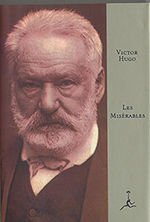
These are classic books with deep religious meaning. The Lord of the Rings is full of humble heroes, fighting together, strengthened in many ways along their journey against evil. Les Misérables is a beautiful story of forgiveness, redemption, poverty, and love, portrayed in many different ways through different characters. Anna Karenina lives in sadness and sin, which leads to her demise, while Tolstoy’s character Levin lives a simple life of goodness and faith. His heart longs for true love, and to his surprise, he finds it.
The Lord of the Rings trilogy by J.R.R. Tolkien
Les Misérables by Victor Hugo
Anna Karenina by Leo Tolstoy
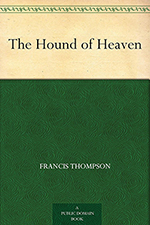
Poetry inspires
By Sister Theresa Ahern, M.S.B.T., archivist
I have found poetry to inspire me especially when it reflects scripture and the person of Jesus. I was taught by sisters who shared their love of music and literature, especially poetry. I was very fortunate.
"The Hound of Heaven" poem by Francis Thomas
Poetry of Jessica Powers
Poetry and works of Thomas Merton


Nourishing imagination and soul
By Sister Laura Leming, F.M.I., sociology professor
I think literature has helped my imagination grow, including my Catholic imagination. I've been a reader since I was young, but that got lost initially in graduate school when it seemed like I had no time for leisure reading. I made a decision to end that, so I read at least a few paragraphs every night to feed my soul before I read scripture.
Poetry of Mary Oliver

Lean into the questions
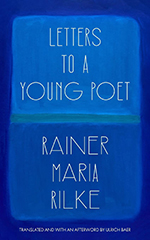
By Sister Colleen O'Toole, R.S.M., preschool teacher
When I was discerning religious life and had a lot of questions, this passage from Letters to a Young Poet was helpful: "Live the questions now. Perhaps you will then gradually, without noticing it, live along some distant day into the answer." I have in fact lived into some of them, and as new ones arise, it is a helpful reminder to stay centered in God, who will reveal all things in time. It also reassures me that I don't need to know everything, and that questions, wondering, and ambiguity are essential to faith.
Poetry of Rainer Maria Rilke, especially the Book of Hours and Letters to a Young Poet
Tags
Related
- Icons: An age-old entrée into the divine
- Religious communities have deep and diverse roots
- Scientific wonder is God’s handiwork
- Respite and renewal brought to you by religious communities
- Lives that lead to God: Biographies and memoirs
- Religious orders aid and advocate for migrants
- Rural religious take to the highways and byways
- Divine design: The holiness of place
- More prayer spaces of religious communities
- Word as witness to the Word Read More
Most Viewed
- Find your spirituality type quiz
- Questions and answers about religious vocations
- Celibacy quiz: Could I be a nun? Could I be a brother? Could I be a priest?
- Resources for older discerners or those with physical and developmental differences
- About Vocation Network and VISION Guide


